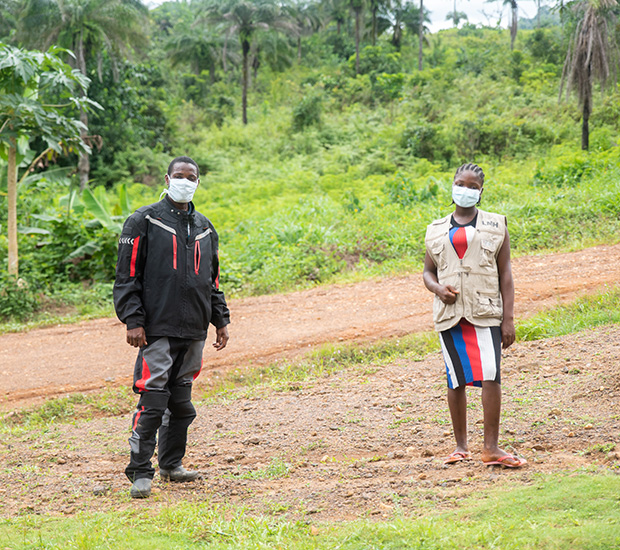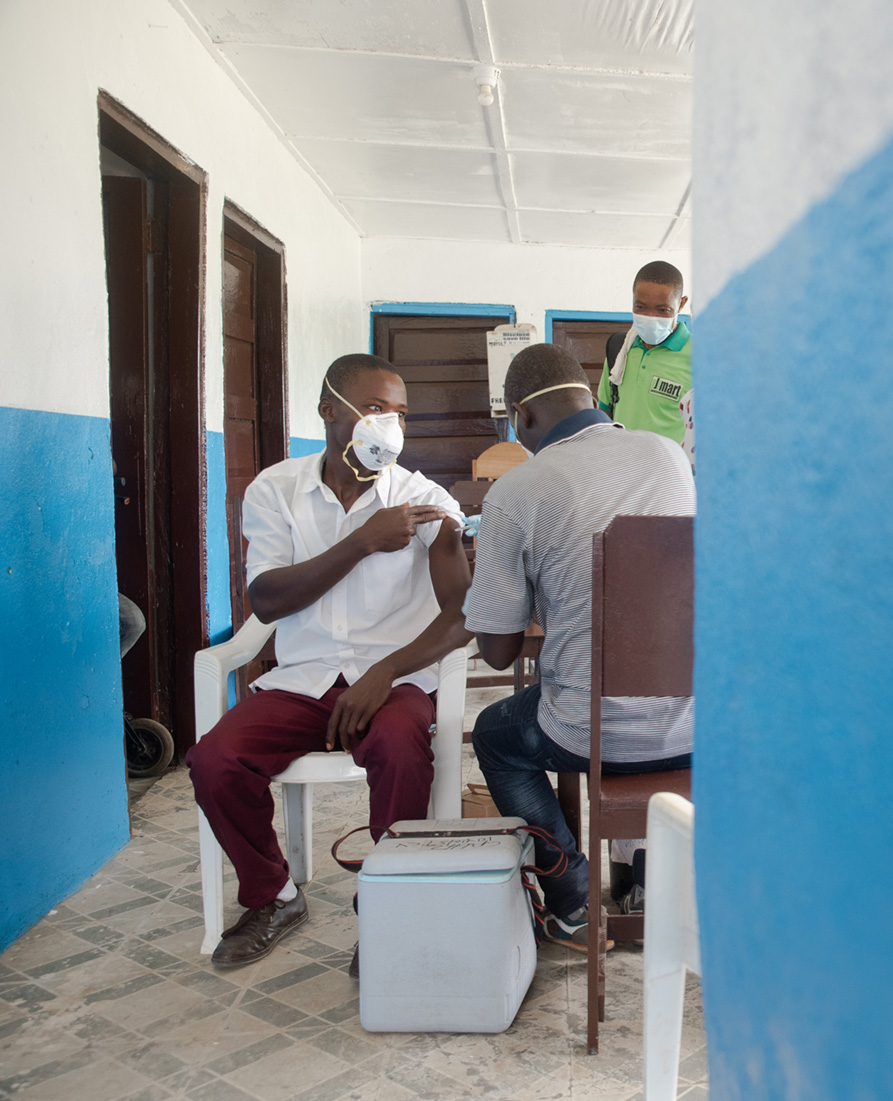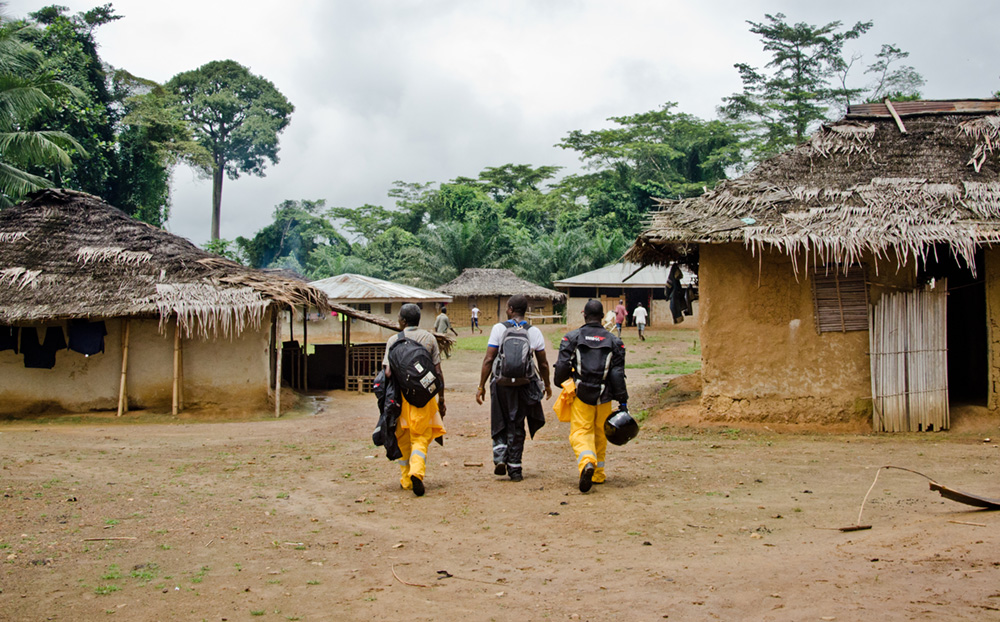Blog Post
Last Mile Health and Africa Frontline First attend the 77th World Health Assembly
Strong, resilient community health systems are critical to preventing, preparing for, and responding to epidemics and pandemics.
Community health workers have long played a critical role in preventing, identifying, and responding to disease outbreaks—and both the Ebola epidemic and the COVID-19 pandemic brought global attention to their enormous potential. When appropriately skilled, salaried, supplied, supervised, and integrated into national health systems operating at scale, community health workers can maintain routine health services even during national and global health crises. They are also key to educating communities on disease threats and prevention practices, conducting disease surveillance and contact tracing, and providing testing and treatment. In poor, rural, and remote communities, community health workers often represent the only link to the formal health system—meaning they are patients’ best resource for treatment and governments’ best resource for tracking outbreaks at the community level.

Throughout Last Mile Health’s history, we have supported governments to utilize paid, professional community health workers as a core element in their response to disease outbreaks.
During the Ebola epidemic in 2014 and 2015, in partnership with the Government of Liberia, we trained more than 1,300 health workers and community members to rapidly educate communities, refer patients to care, and contain the spread of the disease. Primary health services, which had all but shut down across Liberia, were never disrupted in the communities where we worked. Community health workers’ extraordinary contributions to the fight against ebola led to the launch of Liberia’s national community health program in 2016.


Beginning in 2020, when COVID-19 emerged as a global threat, we partnered with governments in Ethiopia, Liberia, Malawi, Sierra Leone, and Uganda to organize a comprehensive COVID-19 response around three primary objectives: ensuring the continuity of primary healthcare services for patients, limiting health worker infections, and eliminating transmission from known cases. In Liberia, we worked to ensure community health workers received access to COVID-19 vaccines, and in the three counties where we directly manage Liberia’s National Community Health Program, 97% of community health workers received at least one dose of the COVID-19 vaccine, while 88% have been fully vaccinated. We designed and implemented training and education resources for community and frontline health workers as a critical part of countries’ response efforts; contributed technical expertise to support our Ministry partners to strengthen their national response efforts; and advised on national response strategies. This work underpinned our efforts to advocate for the importance of community health workers to pandemic response globally.
We continue to advocate for investing in community and frontline health workers as part of resilient primary health systems that can withstand the shocks of crisis. We have advised global institutions, such as the World Health Organization, UNICEF, and Africa CDC, on the role of community health workers during the pandemic, and advocated alongside partners like the Community Health Impact Coalition to ensure community health workers are supported with personal protective equipment, training, and vaccinations.
In addition to supporting partner governments in ensuring community health workers are supported with all Six Ss, we advocate for the global adoption of these standards, and have contributed to the World Health Organization’s first-ever community health worker guidelines.
On the urgency of universal health coverage—driven by community health workers—for pandemic preparedness.
Examining the critical need for systems strengthening to advance pandemic preparedness and response.
Highlighting the power of community health workers in pandemic response.
Findings and recommendations for action to curb COVID-19 and inform future pandemic prevention.
Leveraging community health workers for resilient health systems and pandemic response.
To bring a health worker within reach of everyone, everywhere.
SUPPORT OUR WORK >